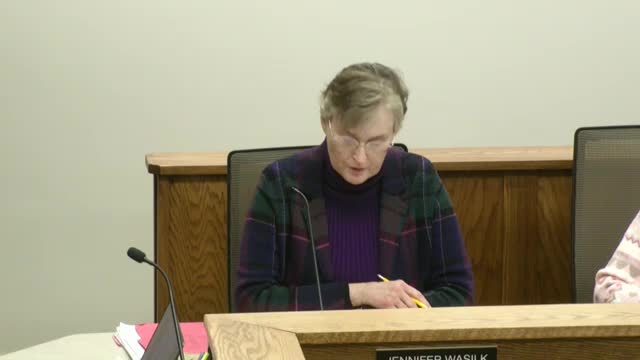Amherst council advances pay-and-employment ordinances, approves one-year $97 fix for fire chief
Get AI-powered insights, summaries, and transcripts
Subscribe
Summary
The Amherst City Council on Nov. 10 sent a package of ordinances setting wages and employment terms for city positions to second reading and unanimously approved a one-year $97-per-month supplement to make the fire chief "whole" for 2026 after a longevity-pay calculation reduced his pay.
The Amherst City Council on Nov. 10 advanced a series of ordinances that would set salaries, wage rates and benefits for multiple city positions and approved a one-year, $97-per-month adjustment for the fire chief to offset a longevity-pay change.
Council considered a group of first-reading ordinances (items 6a–6j) that would establish pay and terms for positions including the city auditor, certain non-bargaining employees, the director of the Office on Aging, permanent part-time payroll and tax assistants, utility supervisors, the treasurer, police command staff and a civilian police administrator. Each ordinance was moved to the second reading and passed on roll call votes of 7 to 0.
Mayor (unnamed in the transcript) asked the council to amend the ordinance for the fire chief (item 6h) to add a temporary Section 11.1. The mayor explained that the city had restructured longevity pay to an hourly rate equal to about $0.08 per hour; using that calculation the fire chief, who has 28 years of service, stood to lose roughly $97 per month under the new formula. "For the year 2026 only, the fire chief is entitled to an additional $97 per month," the mayor said, describing the addition as a one-year measure to restore the chief to the prior monthly stipend level.
Councilmember Wacholz moved to amend item 6h as the mayor requested; the amendment was adopted on a roll call vote and the amended ordinance was sent to second reading as amended, the clerk recorded the motion passing 7 to 0. Council minutes show the amendment applies for 2026 only and does not alter the permanent longevity provisions beyond making the chief "whole" for that year.
The wage-and-terms ordinances were otherwise advanced without further debate. Clerk roll-call entries record affirmative votes from the seven council members present; no councilmember recorded opposition or abstention during the first-reading votes reported in the meeting minutes.
What happens next: Each ordinance will return for a second reading before the council; the amendment to item 6h will be included in the language considered at that next reading. The council did not adopt any of the ordinances into law at this meeting; advancement to second reading is a procedural step in the legislative process.
